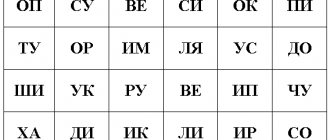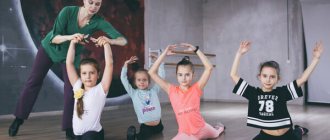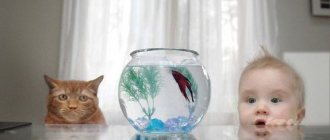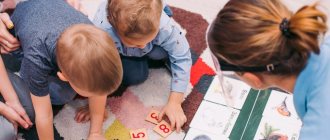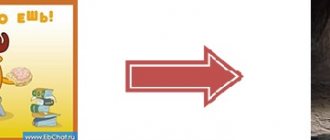MAGAZINE Preschooler.RF
The work program of the Parents' Club for the adaptation of children and parents to preschool educational institutionsThe work program is drawn up in accordance with regulatory documents:
- Federal Law of December 29, 2012 No. 273-FZ “On Education in the Russian Federation” ;
- Federal State Educational Standard for preschool education, approved by order of the Ministry of Education and Science of Russia dated October 17, 2013 No. 1155.
The program also takes into account the recommendations of the letter of the Ministry of Education and Science of Russia dated December 11, 2006 No. 06-1844 “On approximate requirements for additional education programs for children .
When entering a preschool educational institution (DOU), all children experience adaptation stress. The adaptive capabilities of a child of early and early preschool age are limited, so a sudden transition of a child to a new social situation and a long stay in a stressful state can lead to emotional disturbances or a slowdown in the rate of psychophysical development.
It is necessary to help children overcome the stress of admission and successfully adapt to a preschool or institution.
Young children are emotional and impressionable. They tend to quickly become infected with strong, both positive and negative, emotions of adults and peers, and imitate their actions. These features formed the basis for constructing a cycle of lessons. To reduce the impact of stress factors, classes are conducted with the participation of parents. In the presence of parents, children are more willing to make contact with a teacher or psychologist, interact with peers, participate in joint outdoor games, and are more actively interested in their environment and toys. It is very important that the child gains his first experience in a preschool institution with the support of a loved one. Joint classes are a kind of “master class” for parents, as the psychologist shows them new means and ways of communicating with children.
The informal atmosphere of classes contributes to more active and open communication between the teacher and psychologist and parents. The teacher takes an active part in the classes. He adopts the methods and techniques used by the psychologist in various situations, notes the games that children like the most and uses them in his work.
Goal: to create a favorable psycho-emotional climate and comfort for young children in the family and preschool institutions.
Tasks:
Create conditions for:
- relieving emotional and muscle tension in young children
- reducing impulsivity, excessive physical activity, anxiety, aggression
- development of attention, perception, speech, imagination, skills of interaction with each other in children
- development of a sense of rhythm, general and fine motor skills, coordination of movements; gaming skills, voluntary behavior in children
- to form an adequate perception of parents of their child
Contribute:
- creating a favorable microclimate in the family to maximize the development of the child’s personal and social resources
- formation of partnerships between parents and institutions that provide interconnection and complementarity of knowledge, enrichment of experience
- personal and social development of parents, formation of skills of social activity and constructive behavior.
The program was developed using the methodology described by A.S. Ronzhina in the book “Psychologist’s classes with children 2-4 years old during the period of adaptation to a preschool institution .
Main activities:
- educational (educational) - the formation in parents of an adequate perception of the child, acceptance of his characteristics, pace and originality of psychophysical development. Thanks to educational activities, mutual understanding and interaction between specialists and parents are formed, and attitudes towards the child and themselves change. At club meetings, parents receive additional information about the characteristics of the child’s development, directions of his upbringing and education.
- psychoprophylactic - reducing the level of psycho-emotional stress, forming a positive image of the future child and the family as a whole, psychological and pedagogical support for the family. Thanks to psychoprophylactic methods, parents become calmer and have a desire to cooperate. At the same time, there is a significant stabilization of the psycho-emotional state in children.
- integration - social self-realization of parents, changing society's attitude towards them. Thanks to appropriate activities, objective involvement in public life and social significance is formed, which significantly affects the development of the child.
Club participants: educational psychologist, music director, teacher, speech therapist.
The basic means of work are a variety of games with speech accompaniment: round dances, marches, songs, nursery rhymes, rhymes, “okay” and “catch-up” . They quickly involve children in their rhythm, switch them to different types of activities, unite them, and set a positive emotional mood. In these games, even shy, introverted children gradually overcome their internal barrier and make contact with adults and peers.
1. 2 Planned results of mastering the program:
Children: successful adaptation to preschool education;
Parents: developing an adequate perception of their child; the formation of a favorable microclimate in the family to maximize the development of the child’s personal and social resources; formation of partnerships between parents and the institution, enrichment with experience.
| Next > |
Program of the parent-child club “Healthy”.
Anonova Nadezhda Nikolaevna MBDOU No. 160, Izhevsk, teacher
Program of the parent-child club “Healthy”.
Explanatory note:
Currently, an urgent problem is the interaction of preschool teachers with parents, which involves the exchange of thoughts, feelings, and experiences; It is also aimed at improving the pedagogical culture of parents, that is, imparting knowledge to them, developing their pedagogical skills. The involvement of parents in activities at preschool educational institutions, their interested participation in the educational process is necessary for the successful physical development and health of the child. To consolidate the motor skills acquired in a preschool institution, to strengthen and preserve the health of children, parents must skillfully organize their children’s leisure time. The health of children depends not only on physical characteristics, but also on living conditions in the family. Preschool education has the opportunity to introduce parents and children to a healthy lifestyle. The cooperation of teachers, parents and children contributes to the creation of an emotionally comfortable environment, stimulates interest in physical exercise, various methods of healing and sports. Interaction with parents leads to unity. Such cooperation improves mutual understanding and increases the degree of parental trust in the preschool institution.
Relevance.
Not a single physical education and health program can give full results if it is not implemented together with the family, if a child-adult community has not been created in a preschool institution, which is characterized by assistance to each other, taking into account the capabilities, interests, rights and responsibilities of each participant. Joint activities between children and parents significantly influence the creation and maintenance of a favorable psychological climate in the family. And since the parents themselves constantly show the child what joy joint physical education classes bring them, then in the future the child will independently engage in physical and health-improving exercises with pleasure, because he will form the concept of this activity as approved by his close and beloved people.
The work of the club is designed for 3 years (middle, senior, preparatory groups), classes are held once every 3 months.
Club goal:
Promoting a healthy lifestyle in the family. Formation of an active position among parents in relation to their own health and the health of their children.
Tasks:
1. Increasing the psychological and pedagogical competence of parents in matters of improving the health of preschool children, taking into account the individual characteristics, capabilities and needs of families.
